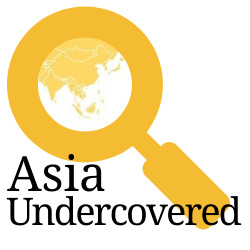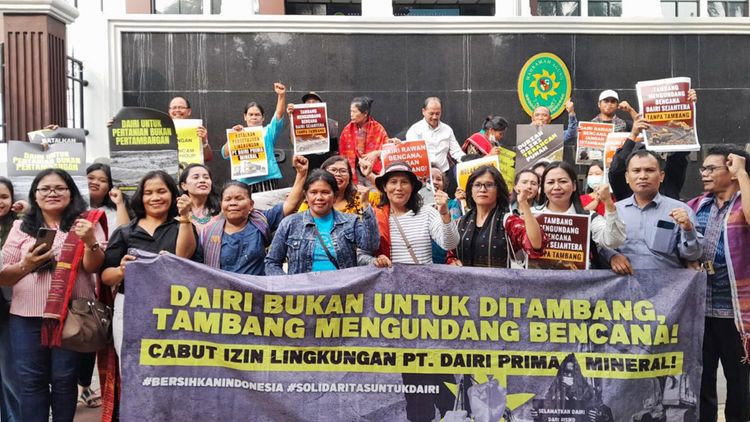Asia Undercovered Round-up: 10 Aug 2021

This week: Xinjiang camps can hold a million Uyghurs, Taiwan's upcoming referendums, and covering disaster recovery the right way.
Still undercovered: The Uyghur Crisis
It’s these kinds of stories, of unimaginable tragedy, that really show the human cost of the ongoing genocide in Xinjiang/East Turkestan. An entire birthday party imprisoned, and then sentenced to jail, for being Uyghur (Global Voices).
Meanwhile, data and satellite imagery shows that the camps, could hold at least 1 in 25 of all Uyghurs at any given time – a likely undercount as it doesn’t factor in facilities built before 2016, or overcrowding.
Meanwhile, the rights of other minorities in China, even to learn in their native language, is officially gone. What’s next? Will the Uyghur model spread to Tibet, Hong Kong, Inner Mongolia, or elsewhere?

Also Undercovered last week
Thailand is going forward with nominating the Kaeng Krachan Forest Complex for World Heritage status, despite concerns about human rights violations and ongoing land disputes against indigenous communities in the area (Prachatai).
After he was elected in 2016, President Rodrigo Duterte’s violent drug war in the Philippines garnered global headlines, with over 7000 killed so far. This investigation by Rappler found that, as scrutiny of police increased, the burden of killing went to vigilantes, and for family members of victims like 20 year old Mark, killed in police custody, justice is nearly impossible (Lian Buan, Jodesz Gavilan).
More of this please. As protests and violence increases in West Papua, Evi Mariani, a Chinese-Indonesian, calls on her community to support #PapuanLivesMatter, as the issues facing them reflect ones that ethnic Chinese have also faced in Indonesia (Jakarta Post).
This fascinating piece by Prettika Nanda explores the visual and rhetorical markers of India’s colonial control over Kashmir, including tulips, images of the so-called “paradise on earth” and references to the “kindness of its people,” all juxtaposed with the pervasive military presence in the contested region (Raiot).

Electoral Politics
In December, Taiwan will go the polls to vote on four referendums, the results of which, argues Bill Sharp, could make or break the remainder of President Tsai Ing-wen’s time in office. The issues include: nuclear power, the Datan algal reef, US pork imports and future referendum dates (East Asia Forum).
Protests are on the rise again in Malaysia as frustration over a botched pandemic response, backdoor politics, and a Prime Minister who refuses to let Parliament operate, rise (Mong Palatino, Global Voices).

Geopolitics
Small states can play a role in geopolitics, or conflict resolution, too. Take, for example, Mongolia, which, according to Shinae Hong, has been playing a mediating role in the Korea conflict, including the establishment of a dialogue venue in the capital Ulaanbaatar (The Diplomat)
China-led special economic zones are proliferating across Asia, and the world, aimed at enabling trade and economic development. As it also turns out, they are also facilitating illegal wildlife trafficking, according to Sheryl Lee Tian Tong in Mongbay.

Solutions Stories
Anniversary coverage, a year, or two, or 10, after a disaster is common, usually done by parachuting journalists visiting a location for a day or two and providing little real insight. What you don’t often get are articles like this – which followed victims in Aceh, Indonesia for 16 years to understand the challenges of recovering from the 2004 Boxing day tsunami (The Conversation).
Debt is crushing Pakistan and its ability to recover from the pandemic-connected economic crisis. One way forward – nature performance bonds that allows for debt-relief in exchange for nature protection, and climate action (Qamar-uz-Zaman, The Third Pole).

What I wrote: Once a month, I share my own reporting from Asia
I’m increasingly focused on stories about interconnections between countries in Asia – exactly the kind of reporting that is missing from a lot of mainstream western reporting, and also which plays to me strengths as a journalist with expertise in different regions. Here are two recent articles
For Devex I look at the potential impacts for clean energy in SE Asia of a new Japan-led decarbonization fund ($).
For Nikkei Asia I connect the themes, desires, and potential of three youth-led parties seeking to upend politics as usual in Thailand, Malaysia, and Indonesia ($).

Asia Undercovered: Weekly round-ups and in-depth analysis of the news, events, trends and people changing Asia, but not getting enough attention in the US media.





Member discussion